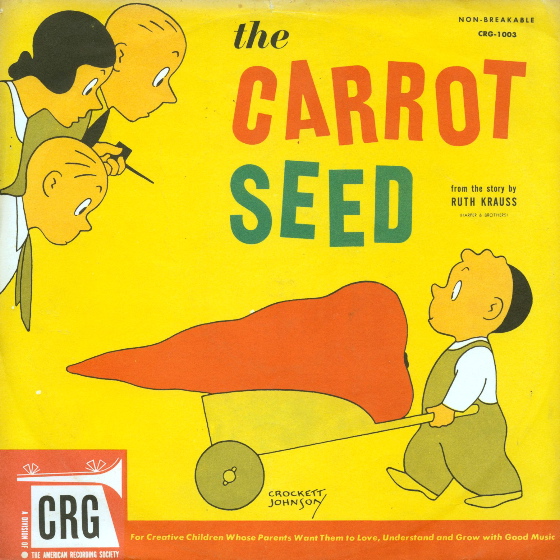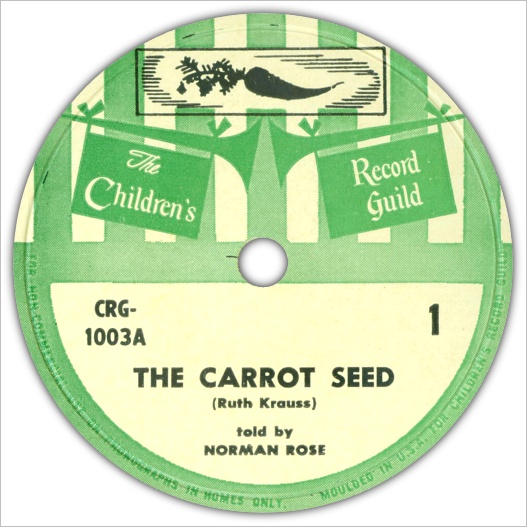
The Internet can be a spooky place — wandering through it can be like wandering through the subconscious of the culture, its deep, shadowy memories. When what you find there connects with your own subconscious, your own, deep, shadowy memories, the Internet can seem like a precinct of your self.
Some of my earliest childhood memories, from when I was three or four, include distinct images of the old record player in my grandparents's living room — a fancy console with a door that opened onto a turntable that played 78s and 45s. Another door opened onto a storage place for records — including albums that really were albums, bound volumes of record sleeves that contained 78s.
My grandparents had bought a bunch of kids' records for when the grandchildren came to visit, and I caused a sensation at the age of four or five when I could identify particular titles in a loose stack of disks, even though I couldn't read the labels. I had simply memorized the colors and designs of the labels and remembered what recordings they were associated with. The fact that some of the labels had pictures on them which related to the titles of the records did not lessen the admiration of my parents for my early signs of genius, which basically amounted to no more than the kind of trick a dog can be taught.
I had taught myself this trick, however, because the records were very important to me and I wanted to be able to play my favorite ones without having to depend on adults to pick them out for me. One record in particular captured my imagination and has never left my consciousness for too long since, even though I haven't heard it for perhaps fifty years.
Recently I found it again, virtually, online, at a site called Kiddie Records Weekly, which has posted a very impressive collection of old 78s for kids, along with scans of the albums they came in. I couldn't tell you how I found this site. It appeared at the end of a twisting series of links from various music blogs, most of which offered downloads of old out-of-print LPs ripped from vinyl. But there it was, suddenly — the cover of The Carrot Seed, a downloadable MP3 of the record, even a scan of the record label:

It was especially spooky to see the label again, which I had once taught myself to “read” by its color and design alone — it put me in touch with my pre-literate self, for whom the words on the label were abstract signs.
The record itself had a moral — you can listen to it here — and it's not too much to say that it helped form my character, taught me the value of following my own lights in the face of the world's skepticism. The heroism of the little boy who believed his carrot seed would grow in spite of all opinions to the contrary is a kind of heroism I still admire. His vindication still stirs me.
I couldn't have appreciated the allusion to sexual potency in the chant of the doubting brother — “Nyah, nyah, it won't come up, your carrot won't come up” — but who knows how it might have echoed in my psyche down through the years?
I had forgotten that the cover of the record was drawn by the great cartoonist Crockett Johnson, author of the classic Harold and the Purple Crayon. I've always had an especially warm feeling for Johnson's work, and obviously that feeling had its roots in this cover. The record derives from a book by Ruth Krauss, who was married to Johnson, which is still in print, having celebrated its 60th anniversary in 2004.
It all seems very strange — that people took the trouble to collect and preserve this record, to scan its cover and label, to digitize its audio and post it all on a web site . . . that I stumbled upon it by chance while looking for albums of vintage lounge music on the Internet. My memory and the collective memory floating eerily out there in cyberspace had merged.
